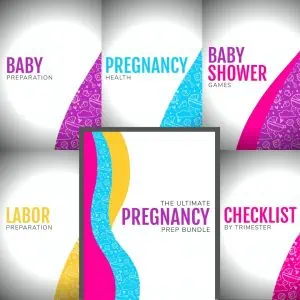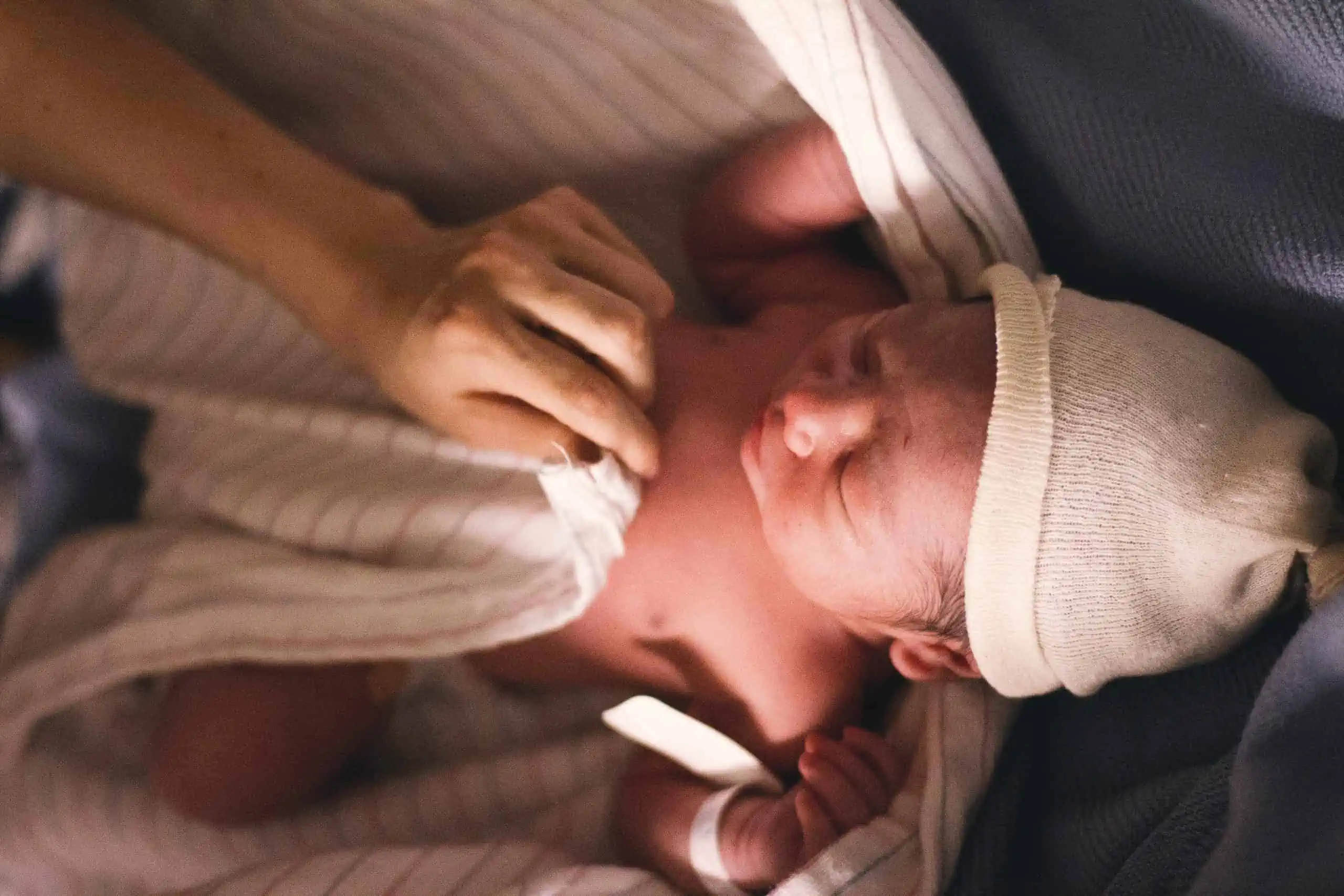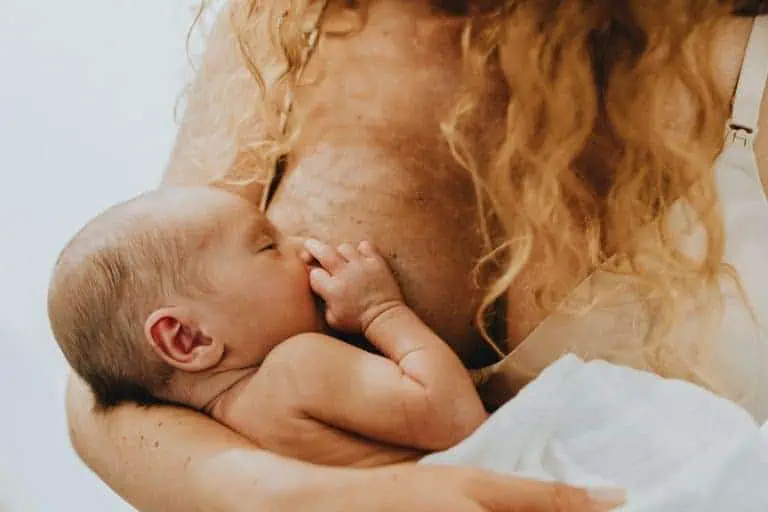Newborn Care: Baby Care Tips for New Moms
This post may contain affiliate links. As an Amazon Associate, I earn from qualifying purchases.
Welcome this this magical article I wish I had when I was a new mom! It has all the baby care tips for new moms that you could ever need 🙂 I hope it helps. And know that, even though the transition can be hard- you’ve totally got this 😉
Being a new mom is exciting and scary at the same time. It is exciting because the baby you have been waiting for so long has finally arrived, and scary because you may feel unprepared for taking care of your newborn. But don’t worry, this feeling is completely normal!
Most new moms feel that they have no idea what they are doing when taking home their baby. I remember being terrified when I was released from the hospital with my daughter. I was so ready to go home- but I was wasn’t sure if I should be trusted with a tiny baby as a brand new sleep deprived mama 🙂
Baby Care Tips to the Rescue!
Fortunately, there are many baby care tips for new moms. These tips helped me a TON as I navigated the trenches as a new mom- recovering from birth, adjusting, and learning how to care for my precious baby. Phew! It was a lot to take in all at once.
As a first-time mom, you will need some time to climb the learning curve and collect some knowledge on how to take care of your baby. Especially because every baby is different: what works for one baby, may not work for another one. Therefore, you will also need to trust your intuition, and never be afraid of asking for help.
I would like to help you with some useful information on newborn care. So I will share with you the best baby care tips for new moms that also saved my life as a first-time mom.
Want some more formal guidance for baby care?
I definitely read as many books as I could about newborn care with my daughter was born- but I don’t think it sank in until she was actually born 🙂 If you prefer videos and want a quick online crash course in baby care- I highly recommend Mama Natural’s course on Newborns. It is curated by an experienced midwife, lactation consultant, OB, and mom to give you only the most important tips- broken up into categories. Plus- you can quickly reference any section you need to when your baby is home (i.e. breastfeeding, diaper changes, play, sleep, etc.) I can’t recommend it enough- check it out here!
Diaper changing
Diaper changing is not so difficult as it may seem at first. You will have to change your newborn’s diaper about 8-12 times a day, so just in a few days, you will be very good at changing diapers. After all, practice makes perfect, right? 🙂
The first and most important thing you should decide on is whether you would like to use disposable diapers or cloth diapers. Both options have their advantages, the choice is up to you which one you prefer.
In both cases, you have to change the diaper every time your baby urinates or has a bowel movement. Before changing the diaper, prepare every supply you may need. Like this, you won’t make one of the parent’s biggest mistakes: leaving the baby unattended on the changing table. Avoid it at all costs, because it can easily lead to an accident!
To a diaper change you will need:
- clean diaper (disposable or cloth),
- diaper cream or ointment,
- baby wipes,
- a change of clothes for the baby (it may be necessary in some cases),
- disposable bag, and
- a place to change (changing table or changing pad placed on the bed or the floor).
Every time you need to change the diaper, lay the baby down on his or her back. Remove the dirty diaper, and clean the baby’s genital area with wipes or wet cotton balls. If you have a baby girl, always wipe from the front to the back to prevent an infection. After cleaning, apply a cream or ointment to prevent a rash or heal existing rashes. Then slide the new diaper under your baby’s bottom and close the diaper. Throw the dirty diaper in a bag or the garbage bin, and wash your hands.
Related read: Changing Table Organizer Ideas
What a baby’s diaper says about their health
When your baby is born, don’t be alarmed by the tar like poo that they excrete- called meconium. After around 2-3 days your baby’s poop will transition to liquid stools that are yellowish in color (if formula fed- they are more green). Breastfed babies tend to poop after every feed or at least 3 times per day for the first 6-ish weeks. Whereas bottle fed babies may poop less. Then from 6 weeks and beyond, you can expect poop frequency to decrease. It is not uncommon to have a few days of no pooping as baby grows- this is okay as long as baby isn’t too fussy or uncomfortable.
Talk to your doctor if the stool changes color dramatically, is bloody, or full of mucus. While it’s hard to track urination, you can also track how often your baby pees (usually at least 6 times in 24 hours) if you’re concerned about hydration.
Feeding
Whether you are breastfeeding or bottle-feeding, you may be wondering how often and how long you should feed your baby. The most common recommendation is to feed the baby on demand, which means that whenever the baby seems hungry. And how will you know that your little one is hungry? Babies often make a sign to their mom by crying, putting their finger in the mouth, or they can even make noises similar to sucking.
In general, you need to feed your newborn baby every 2-3 hours. If you choose to breastfeed, nurse your baby for 10 or 15 minutes at each breast. If you are bottle-feeding, you can easily keep track of how much your baby is eating. A baby should get about 2-3 ounces (60-90 ml) formula at each feeding by 2 weeks of age. Then this number increases to 2-4 ounces by 1 month of age, 5-6 ounces by 2 months of age, and 6-7 ounces by 3-5 months of age.
If you start to dig into the topic of newborn care, I’m sure that you will meet the recommendation that says wake up your baby to eat every few hours. Sometimes it may be necessary, especially in the first few weeks to make sure that your baby eats enough.
When babies are eating, they often swallow some air. Because of this extra air, your little one can be gassy or fussy. To prevent this, try to burp your baby whenever you change breasts (in case of breastfeeding), or after every 2-3 ounces (if you bottle-feed), and also when you finished feeding. In case you don’t know how to burp your baby, here is a simple tip: Put your baby’s head on your shoulder (the baby is upright with the head), and support his or her head while you are very gently patting the baby’s back with the other hand.
Related read: BREASTFEEDING TIPS: PROBLEMS AND SOLUTIONS
Sleep schedule

Newborn babies sleep a lot. But how is it possible that they sleep about 16 hours or even more, and their moms can’t get enough sleep? Babies sleep for short periods, which means that they wake up every 2-4 hours also during the night. And this can be exhausting.
Unfortunately, it will take a few months until your baby will sleep through the night. Some babies sleep for 6-8 hours without awakening during the night at 3 months of age. But if your baby doesn’t, don’t worry. Every baby needs time until the digestive system will be developed enough to sleep through the night, and they also need to develop their sleep patterns.
Many babies are completely mixed up about the times of the day. They may be more alert and active at night while sleeping more in the daytime. If this happens to your little one as well, then you can help him or her by darkening the room at night (use only a nightlight if needed). Also, play with your baby during the day, instead of playing and talking at night. This way, after a time your baby will be aware of the differences between day and night.
Related read: HOW CAN I HELP MY BABY SLEEP? BEST TIPS FOR BABY SLEEP MUSIC.
[convertkit form=1551829]
Sleep safety, how to prevent SIDS
There are some baby care tips for new moms that you really shouldn’t skip because they are so important. And sleep safety tips are one of them.
SIDS (sudden infant death syndrome) is the unexplained death of babies who are less than 1 year old. Death usually occurs during sleep when the babies are in their crib, therefore they call it also crib death. To prevent SIDS, there are some precautions you should take. According to the American Academy of Pediatrics, the best way to reduce the risk of SIDS is to put your baby to sleep on his or her back.
Other useful tips that can help to make your baby sleep safer:
- Put the baby to sleep on a mattress that is firm. Avoid soft mattresses and surfaces.
- Remove toys and unnecessary things from the crib: placing stuffed toys, pillows, loose bedding, and other unnecessary items into a baby’s crib can be very dangerous.
- Leave the baby’s head and face uncovered and make sure nothing can cover the mouth and nose area during sleep.
- Make sure your baby won’t get too warm when sleeping.
- Avoid using sleep positioners.
- Don’t let anyone smoke near the baby.
Skincare
Newborn babies have very soft and silky but sensitive skin that requires special attention and skincare.
It’s important to know that newborn babies don’t need to be bathed every day. First of all, they don’t get dirty so much that they should get daily baths. Secondly, if you bathe your baby every day, it could make his or her skin dry. It is enough if you bathe the baby a few times a week with baby shampoo and body wash.
Instead of daily baths, apply simple sponge baths. To do that, take a sponge or a washcloth, and put it in warm water. Then clean the baby with this wet sponge or washcloth, starting from the top of the body. Focus on those body parts that may be dirty: diaper area, mouth, skin folds. Always wash the diaper region last because this area is the dirtiest.
You need to protect your baby’s sensitive skin from the sunlight as well. Here are some baby care tips for new moms:
- Don’t expose your baby to direct sunlight under 6 months of age.
- Protect your baby from the sun with appropriate clothing (pants, long sleeves, socks).
- Don’t forget to use sun cream on body parts that are not covered (face and hands too).
If you would like to avoid your little one having any kind of skin problem, make sure that you wash every new outfit before you put them on the baby. You can’t know where those clothes are coming from, how they produced them, and what kind of chemicals they used during manufacturing. It is better if you wash them properly with baby detergent to prevent irritation or other skin issues.
Bath time

The next category amongst the baby care tips for new moms is bath time. When bathing your baby, you should pay attention to safety. Therefore, before the bath, you need to gather all the supplies you may need. You can’t leave the baby alone in the water even for one second, so it is essential.
Here is a list of the supplies you may need to prepare before you start to wash your baby:
- baby body wash,
- tear-free shampoo,
- sponge or washcloths,
- cotton balls,
- hooded towel,
- moisturizer,
- clean clothes,
- clean diaper.
Make sure that the room where you are bathing the baby is warm. You don’t want your baby to get cold. Fill the baby bath with a few inches of warm water. But not hot! You can check the temperature of the water simply with your wrist or elbow.
If you need a step-by-step guide for safely bathing your baby, check out this video:
https://www.youtube.com/watch?v=8nTd4gjgQyE
Bathing your baby 2-3 times a week is completely fine. Between them, apply the above-mentioned sponge bath.
Related read: 10 QUESTIONS YOU SHOULD ALWAYS ASK WHEN SHOPPING FOR BABY PRODUCTS
Playtime

Newborns spend most of their time sleeping, eating, and pooping. So their interest is also pretty much limited to these activities. But there are some “play” ideas that you can try to entertain your baby:
- Place your baby on your chest, and sing or talk to your little one. Babies like vocal sounds and listening to music, so your baby will most likely love it too. The closeness and physical contact will also strengthen your relationship with the baby.
- Lay down the baby on a blanket, and pedal his or her legs (it is also useful if your baby is gassy), or move the arms up and down. You can give a gentle massage to the baby. While laying down, you can show the baby simple toys like stuffed toys or rattles.
- In general, babies like motion, so you can dance slowly while holding your baby in your arms.
- Babies find their mom’s voice soothing. You can read aloud, sing a lullaby, or talk, your baby will enjoy it.
- You don’t need expensive toys to play with the baby. You can simply make funny faces to entertain your baby. It will encourage the baby’s development as well.
Skin-to-skin time

Skin-to-skin time is very important when it comes to newborn care. After your baby is born, the first few hours and days are about creating a bond between the baby and you. It’s the time when due to physical contact you can make a deep, emotional connection with your baby.
To bond, simply hold the baby against your skin, then cradle and stroke the baby. Bonding is not only for moms, but dads can also try it.
Related read: CUTE FOREIGN NAMES FOR GIRLS AND BOYS
Hygiene of the umbilical cord
There are no baby care tips for new moms without mentioning the hygiene of the umbilical cord. You need to take care of the umbilical cord until the cord stump falls off. Most doctors recommend swabbing the area of the umbilical cord with rubbing alcohol to keep it clean. Usually, the stump dries up and simply falls off after 10 days to 3 weeks. The color of the cord stump will change from yellow to brown and black before falling off.
When washing your newborn, it is important to not submerge the navel area in water until the stump falls off and the area heals.

Doctor checkups
Every baby, even healthy babies should regularly attend doctor checkups. According to the American Academy of Pediatrics, babies should get a checkup:
- at birth,
- 3-5 days after birth,
- at 1 month,
- at 2 months,
- at 4 months,
- at 6 months,
- at 9 months,
- at 12 months,
- at 15 months,
- at 18 months, and
- at 24 months.
As you can see from the list, during the first 2 years you need to take your baby very often to the doctor. These 2 years are important regarding your baby’s development and growth, therefore it is better if the doctor follows the baby’s progress.
During the visits, the doctor will check if your baby is growing, eating enough, and developing according to his or her age. Your baby will get the necessary childhood vaccines to prevent diseases as well (you can follow a traditional schedule, modified schedule, or even opt out depending on your needs).
If you have any questions about the baby, you can ask the doctor at these checkups.
Related read: FINDING BALANCE AS A NEW MOM
Taking care of a baby is never easy. However, after a time, you can be very good and comfortable with newborn care. Just try to apply the most important baby care tips for new moms and don’t hesitate to ask for help or ask someone if you have any questions. It truly takes a village to raise a baby!
Did you find these newborn care tips helpful?







